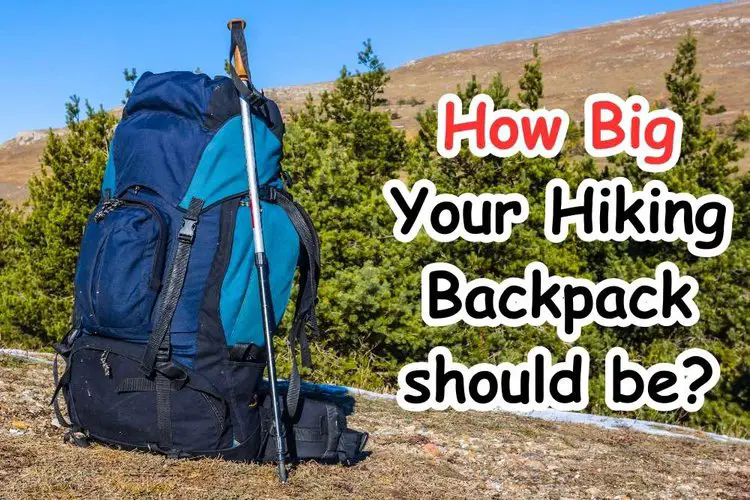Last fall, I embarked on a multi-day hiking trek through a remote wilderness area.
I knew that I would need a larger backpack to accommodate all of my gear, but I wasn’t sure how big to go.
I didn’t want to be carrying unnecessary weight, but I also didn’t want to leave behind anything important.
In the end, I chose a backpack that was slightly larger than I thought I needed.
I figured that it was better to have a little extra room just in case.
However, as I started the trek, I quickly realized that my backpack was too big. It was awkward and uncomfortable to carry, and it threw off my balance on the trail.
Luckily, I had a fellow hiker with me who had a smaller backpack.
We were able to redistribute some of my gear into her backpack, and suddenly, everything felt much better.
I realized that I had made the mistake of assuming that bigger was always better, when in reality, I just needed a backpack that was appropriate for my own gear needs.
Key Takeaways
- The size of your hiking backpack will depend on the length and type of your hike, as well as your personal preferences and needs.
- When choosing a backpack size, consider the amount of gear you will need to carry, as well as the weight and bulkiness of the gear.
- A general guideline is to choose a backpack size in liters that is roughly equal to the number of days you will be hiking, with 30-50 liters being suitable for day hikes, 50-70 liters for weekend trips, and 70+ liters for longer expeditions.
- Pay attention to the fit of your backpack, as a poorly fitting backpack can lead to discomfort and even injury on the trail.
- Don’t forget to consider other features, such as the material and construction of the backpack, as well as additional pockets and compartments for organization.
- You should try on different backpack sizes and styles to find the best fit and comfort for your individual needs.
Contents
How to choose the right capacity for your hiking backpack?
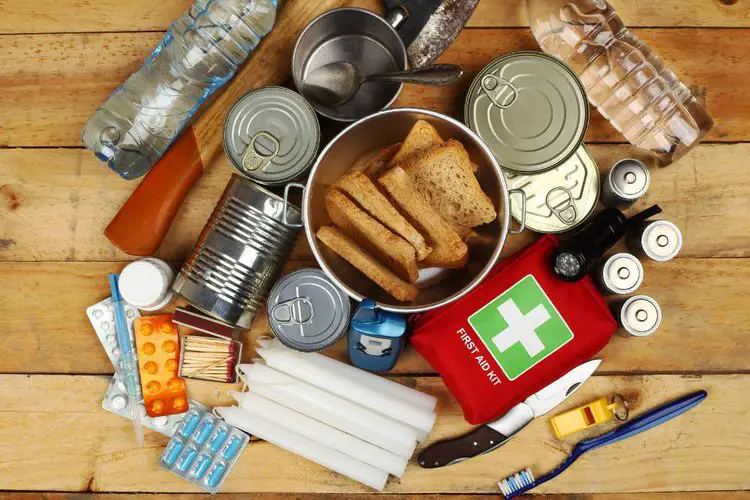
Let’s say you’re planning a day hike in a mountainous area. Here’s an example of what items you might want to pack in your hiking backpack:
- Water: Bring at least 2-3 liters of water per person, depending on the length and difficulty of your hike.
- Snacks: Pack a variety of high-energy snacks like nuts, energy bars, and dried fruit to keep you fueled throughout the day.
- Sun protection: Bring sunscreen, a hat, and sunglasses to protect yourself from the sun.
- Extra layers: Even if it’s warm when you start your hike, temperatures can change quickly in the mountains. Bring extra layers like a lightweight jacket or fleece to stay warm if it gets chilly.
- Map and compass: Always bring a map and compass (and know how to use them!) in case you get lost.
- First aid kit: A basic first aid kit with items like band-aids, pain relievers, and antiseptic wipes can be a lifesaver in case of minor injuries.
- Insect repellent: Depending on the area and time of year, you may encounter bugs on your hike. Bring insect repellent to keep them at bay.
Last update on 2023-11-11 / Affiliate links / Images from Amazon Product Advertising API
Based on these items, you could probably get away with a hiking backpack with a capacity of around 20-30 liters for a day hike. This should provide enough room for your gear without being too bulky or heavy.
However, if you tend to pack a lot of extra gear or prefer to carry more water, you may want to opt for a slightly larger backpack with a capacity of 35-40 liters.
- DURABLE. Made with high quality material, ultra-light, tear and water resistant .The extra strength...
- COMFORTABLE. Breathable mesh shoulder straps with plentiful sponge padding help relieve the stress...
- MULTI COMPARTMENTS. One main zipped compartment including two separators help you further organize...
Last update on 2023-11-11 / Affiliate links / Images from Amazon Product Advertising API
Remember, the key is to choose a hiking backpack that’s appropriate for your own needs and comfort level.
Types of Hiking Backpacks

Before we dive into sizing, let’s first explore the different types of hiking backpacks available in the market.
There are three main types: daypacks, overnight backpacks, and multi-day backpacks.
Daypacks are suitable for short hikes and can usually carry 10-25 liters of gear.
Overnight backpacks are designed for overnight trips and can hold 30-50 liters of gear.
Multi-day backpacks are the largest type and are designed for extended hiking trips, with the capacity to carry 50-80 liters of gear.
Last update on 2023-11-11 / Affiliate links / Images from Amazon Product Advertising API
Hiking Type
The type of hiking you plan to do will determine the size of the backpack you need.
If you’re going on a day hike, a smaller daypack should suffice. For longer trips, you’ll need a larger backpack that can accommodate all your gear.
Consider the number of days you’ll be hiking and how much gear you’ll need to bring.
A good rule of thumb is to aim for a backpack with a capacity of 30 liters or more for overnight trips and 50 liters or more for multi-day hikes.
Last update on 2023-11-11 / Affiliate links / Images from Amazon Product Advertising API
Terrain
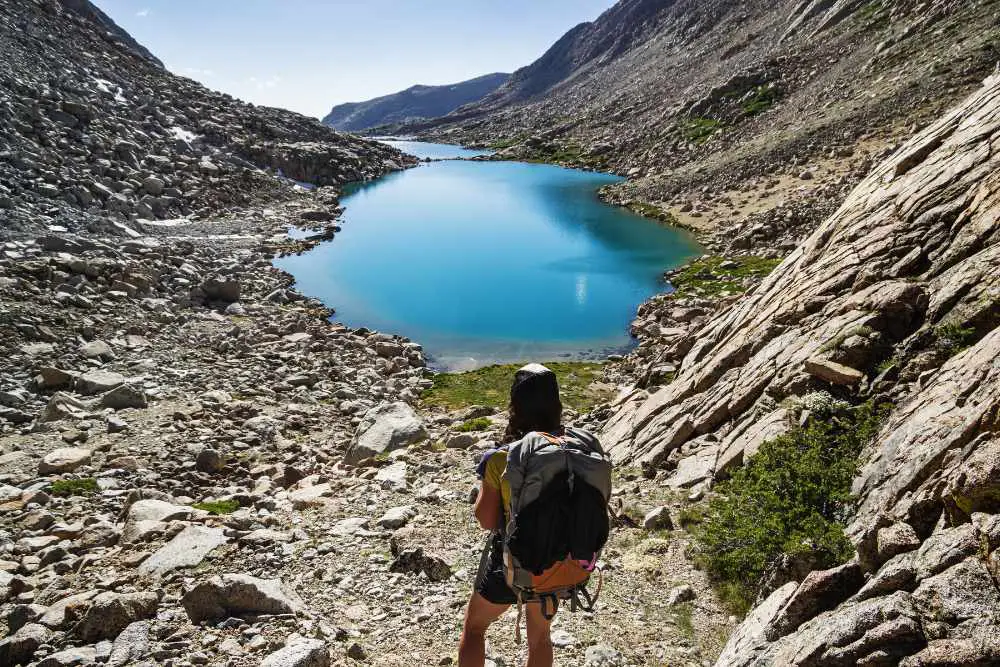
The terrain you’ll be hiking on is another crucial factor to consider when choosing a hiking backpack size.
If you’ll be hiking on smooth, well-maintained trails, a smaller backpack may suffice.
However, if you’ll be hiking on more challenging terrain that requires additional gear, you’ll need a larger backpack that can accommodate your needs.
Length of Hiking Trip
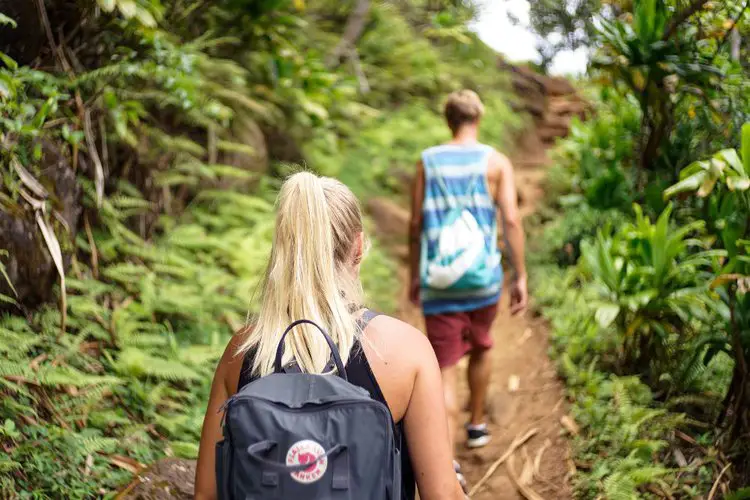
The length of your hiking trip will also play a role in determining the size of backpack you need.
A shorter trip will require less gear, while a longer trip will require more gear.
As mentioned earlier, a backpack with a capacity of 30 liters or more is typically sufficient for an overnight trip, while a backpack with a capacity of 50 liters or more is recommended for multi-day trips.
Environment and Weather
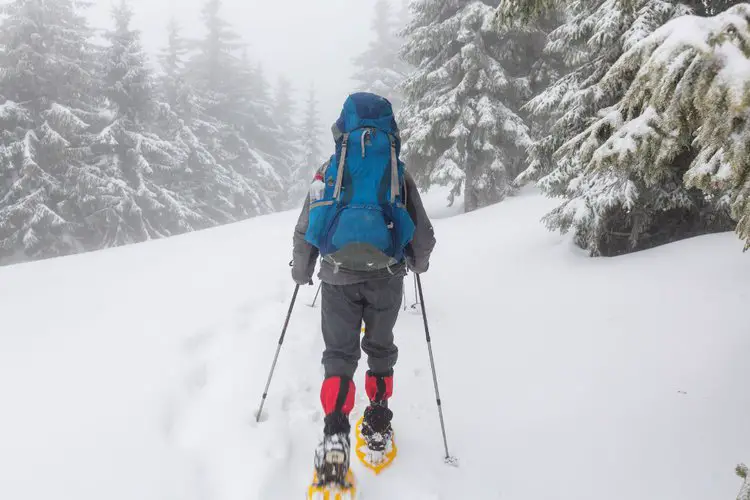
When choosing a hiking backpack size, you should consider the environment and weather conditions you’ll be hiking.
If you’ll be hiking in cold or wet weather, you’ll need extra gear such as warm clothing, rain gear, and a sleeping bag. This means you’ll need a larger backpack to accommodate these items.
Similarly, if you’ll be hiking in hot weather, you’ll need extra water and sunscreen, which will require a larger backpack as well.
Last update on 2023-11-11 / Affiliate links / Images from Amazon Product Advertising API
Your Body Size and Weight
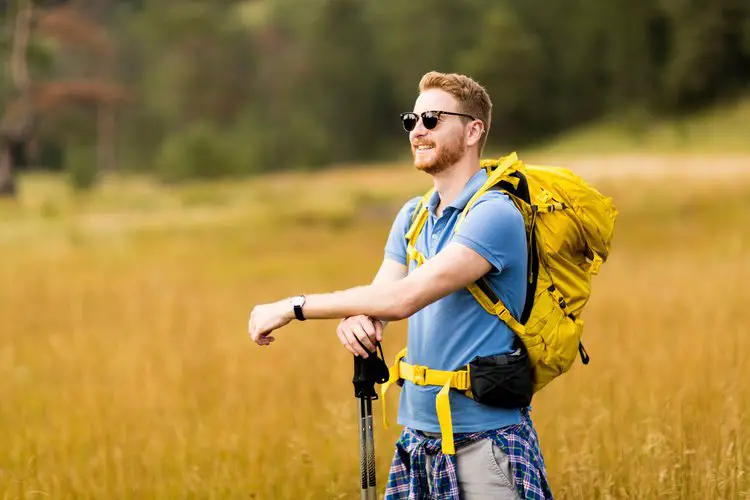
Another important factor to consider when choosing a backpack size is your own body size and weight.
If you have a large build, you’ll likely need a larger backpack to accommodate your gear. Conversely, if you’re a smaller person, a smaller backpack may be more appropriate.
Additionally, the weight of your backpack can affect your balance and stability on the trail, so it’s important to choose a backpack that’s appropriate for your own weight and strength.
Common mistakes when choosing hiking backpack size
Choosing the right size hiking backpack is crucial for a comfortable and enjoyable hiking experience.
However, there are still some mistakes many hikers often make when selecting the size of their backpack, which can lead to discomfort, pain, and even injury.
Assume Bigger is Always Better
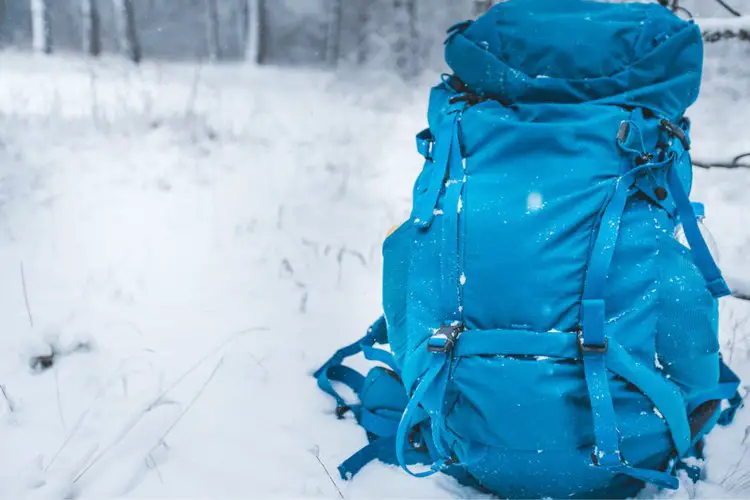
Many hikers make the mistake of thinking that a bigger backpack is always better.
After all, if you have more room, you can bring more gear, right? Well, not necessarily.
A backpack that’s too big for your needs can actually be a hindrance.
It can be more difficult to carry, and it can tempt you to bring unnecessary items that will just weigh you down.
So, while it’s important to choose a backpack with enough capacity for your needs, don’t assume that bigger is always better.
Overpack
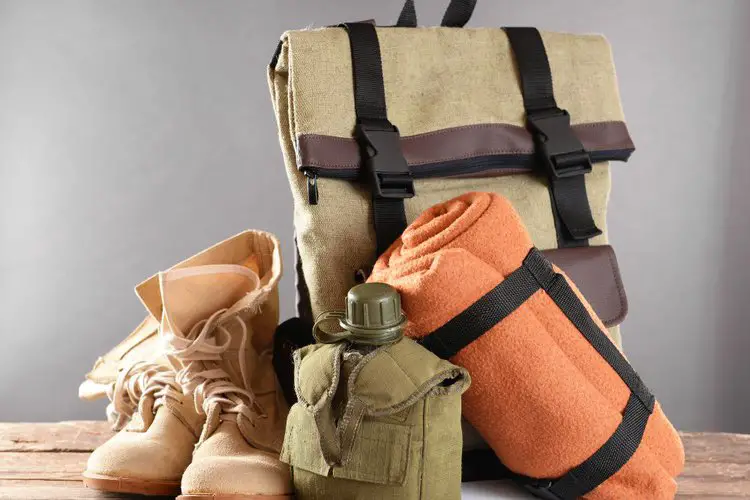
One of the biggest mistakes hikers make when choosing a backpack size is overpacking.
It can be tempting to bring everything but the kitchen sink, but remember – you’ll be carrying all of that weight on your back.
Overpacking can lead to discomfort, fatigue, and even injury.
So, when choosing a backpack size, be realistic about what you actually need to bring. Leave behind non-essential items and focus on the essentials.
Conclusion
Choosing the right size hiking backpack can make or break your hiking experience.
By considering the type of hiking you plan to do, the terrain, the length of your trip, and the environment and weather conditions, you can select a backpack that meets your needs.
And remember to only pack essential items with you on the trip and don’t overpack to ensure an adequate weight on your back.
With these factors in mind, you’ll be well on your way to an enjoyable and safe hiking trip.

